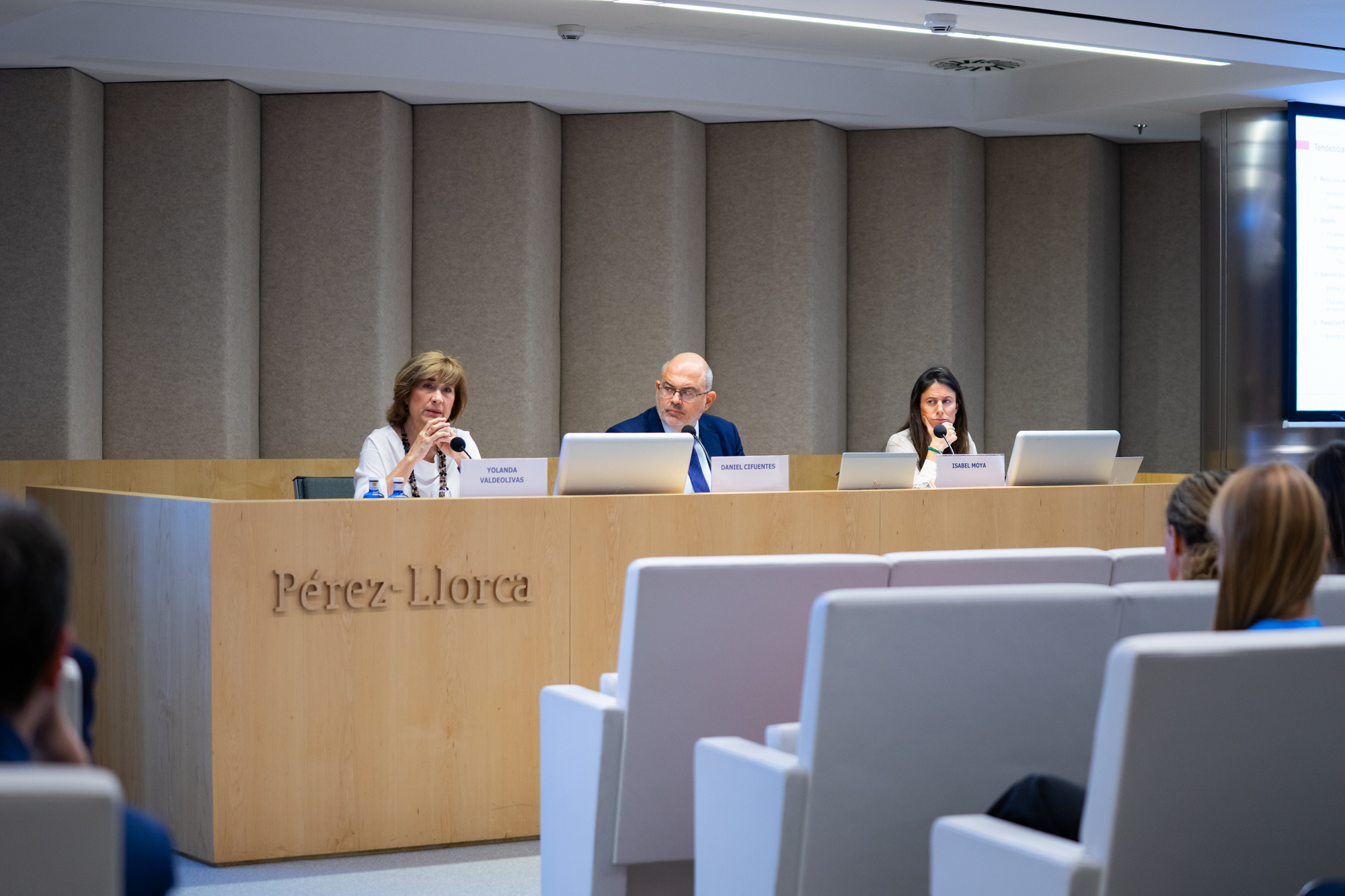
Pérez-Llorca’s Employment, Compensation and Benefits practice area held a new ‘Pérez-Llorca Labour Law Update’ session with the participation of partners Daniel Cifuentes and Isabel Moya and Of Counsel Yolanda Valdeolivas, who discussed the main trends in the labour market for the coming months, as well as the latest and most significant legal rulings.
Yolanda Valdeolivas began the session by reviewing the main throughlines of the planned labour reform, such as the new registration of working hours and termination due to permanent disability, underlining the impact they will have on employers’ obligations. “We are witnessing a legal paradox: measures are being demanded in court that do not yet derive from an existing regulation,” she warned. She also pointed out that the lack of support for SMEs compromises the effectiveness of reforms in risk prevention, especially those concerning mental health or gender. On wages and working hours, respectively, Pérez-Llorca’s Of Counsel highlighted the average increase of 3.35% and the progressive reduction towards 37.5 hours per week. Daniel Cifuentes went on to present the most significant rulings of the past few months on maternity, paid leave and protection of privacy, among others. He discussed this topic in depth, covering important decisions relating to collective bargaining and trade union representation rights. These included the scope of company agreements and the validity of remote voting in trade union elections.
Cifuentes then presented the top three most significant judgments of from the past few months. Firstly, he analysed the Supreme Court’s ruling on 22 July 2024, which confirmed that recordings of private conversations are valid as long as they are made by one of the participants and do not breach privacy rights. These recordings can be used as evidence in legal proceedings, provided that their authenticity (i.e. that they have not been tampered with) is proven and that the person making the recording is part of the conversation. In this context, the Pérez-Llorca partner highlighted the case of the disciplinary dismissal of an employee for recording all of their conversations within the company. “The decision of the High Court of Justice of the Canary Islands established that the hidden and constant recording of all conversations leads to the inevitable loss of confidence on the part of the company, which led to disciplinary dismissal for breach of contractual good faith,” said Cifuentes.
To conclude the session, Cifuentes and Moya offered a practical guide on how companies should act when faced with internal whistleblowing in the light of the Whistleblowing Regulation. Moya explained that, due to the abusive way in which some workers are using the complaint channels, “what we are always suggesting is to carry out a preliminary analysis before opening an investigation directly, considering the cost to the company.” Cifuentes stressed that the duty to investigate arises as soon as the company becomes aware of facts that may affect the safety and health of workers, regardless of the channel through which the information was received: “The company must be prepared to react to any indications, even if a formal complaint has not been lodged through the established channels.”
With regard to the structure and scope of investigations, both experts agreed on the need to ensure the objectivity of the procedure. Moya recommended having a collective and independent body, with mechanisms to avoid conflicts of interest, especially when the Human Resources department may be involved. “The law allows for a great deal of flexibility, but it is important that the procedure is clearly regulated,” he said.
Finally, key issues such as the length of the procedure, confidentiality of files, and balancing the anonymity of complainants with the right to a fair defence for those under investigation were addressed. “Although in practice it is difficult to preserve complete anonymity, the important thing is that we are not the ones who reveal it directly,” said Cifuentes. Both agreed that the best practice is to document the interviews in verbatim records that are signed by the parties and returned with any comments they deem appropriate. With regard to time limits, Moya clarified that “although the law establishes a maximum duration of three months, which may be extended, in labour matters it is essential to keep a continuous record of the proceedings so as not to compromise the statute of limitations or the validity of the procedure.”